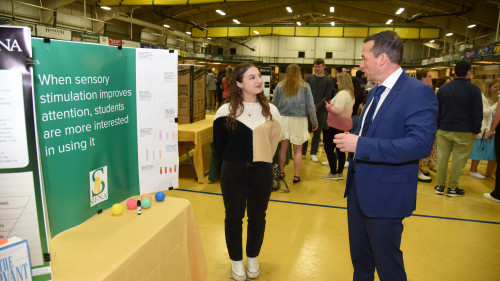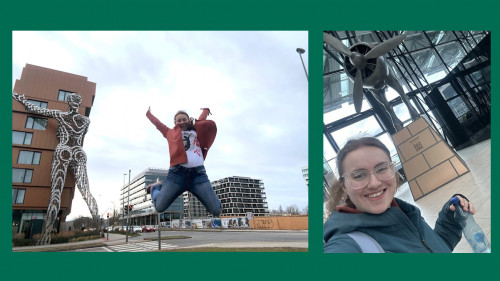

A Siena professor’s research on the movement and jumping behaviors of squirrels recently attracted the British Broadcasting Corporation - yes, that BBC - to campus for an interview.
Greg Byrnes, Ph.D., associate professor of biology, studies animal movement – technically locomotor performance – and the applications it can have for the human world. Sure, squirrels are cute, but the furry rodents that raid our birdfeeders can do some expensive damage. Can studying how they take off and land help us protect our houses and even the power grid? Can animal locomotor performance even give us clues on how to build a better robot?
The footage and interviews captured on campus by the BBC during their two-day visit will be featured on their program The Natural World in the spring of 2018. It will be broadcast on PBS in the United States and on the BBC in Great Britain.
Byrnes explained that how animals move determines whether or not they can collect enough food, evade predators, migrate to new habitats, or attract mates. How do animals interact with the unpredictable environment surrounding them to accomplish these critical behaviors?
His research, which he conducts with the assistance of his undergraduate students, integrates lab-based physiology and mechanics with field-based ecology to understand the foundation of natural locomotor behaviors.
“If a squirrel is getting ready to jump from a rigid or non-rigid surface, does it change how it prepares it’s musculo-skeletal system?”
He compares jumping force, surface rigidity, jumping distances, muscular contractions and more in his ongoing work, determining why squirrels and other animals prepare and move the way they do.
“This has applications for several different fields,” he explained. “Engineers are interested in the information to help build robot actuators. Power companies can use it to build up security for their lines. Architects and builders can use it to damage-proof structures.”

